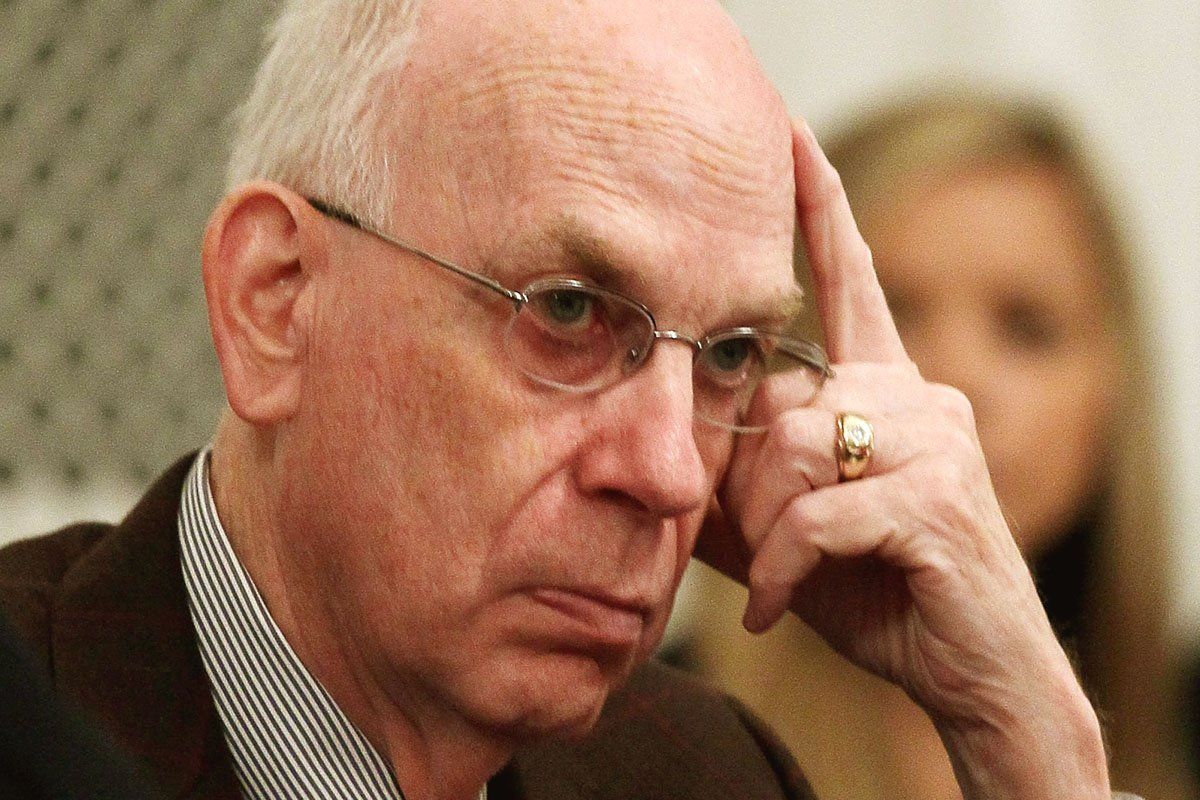
This is the time of year when Congress is in transition and defeated politicians get together to reflect on what went wrong, and to share their pain across party lines. "There's a new definition of bipartisanship in Washington. It's called former member," said Texas Rep. Chet Edwards, who, together with three other defeated lawmakers, shared the stage at the Bipartisan Policy Center on Thursday morning to assess their collective 80 years of experience and to find solace in the group catharsis.
Each of the four had lost to a Republican. The two Republicans on the panel—Utah Sen. Bob Bennett and Delaware Rep. Mike Castle—were taken out in the primary process by Tea Party–backed candidates and came across like they're still in shock. The two Democrats had known they were on borrowed time. Edwards represented the most Republican district in the country, where Tom DeLay had redistricted him to within an inch of his political life, while North Dakota's Earl Pomeroy had supported all the big Obama initiatives knowing he was casting a series of votes that could cost him reelection.
Bennett's loss early in the year at a party convention stacked by the opposition was a wake-up call about the power of the Tea Party. At the time, it was hard to imagine in what universe Bennett, a conservative stalwart, would be considered a liberal. "It's more important to do the right thing than get reelected," Bennett said, adding with a smile, "I proved it." As a ranking member of the banking committee, he was in the room when the bank bailout was negotiated on Capitol Hill. He remembers then Treasury Secretary Henry Paulson telling them they had four days to act or there would be a global financial meltdown.
Bennett said the bank bailout was "Congress's finest moment." He recalled that a colleague said it felt like a James Bond movie with so much peril at hand. When Senate banking committee chairman Chris Dodd announced that lawmakers had reached a deal and turned to Bennett as a senior Republican for his comments, Bennett echoed Dodd, saying, "We have a deal." Footage of Bennett saying those words and standing with the hated Democrats aired in a continuous loop in Utah, dooming Bennett among Tea Party activists.
Asked if he had ever changed his vote to accommodate political needs, he replied forthrightly, yes, that if a vote was "relatively meaningless and I didn't care strongly one way or the other, I would take the conventional conservative route." But he drew the line when it came to the rather obscure appointment of University of Chicago law professor Cass Sunstein to be the administrator of the White House Office of Information and Regulatory Affairs. Conservatives had zeroed in on Sunstein as a left-wing radical, and Bennett thought many of his writings were "nuts." But he talked to him, found him qualified, and determined that he would vote for him. "I have a character flaw in that I want to be fair to people," he said. His staff argued that his vote didn't matter, that Sunstein would be confirmed without him. "It will make me feel better—so take that," he told them. The Sunstein vote was another in the arsenal of complaints about him from the right.
You get the feeling watching Castle that he's still smarting over his defeat at the hands of Christine "I'm not a witch" O'Donnell. "I lost an election people thought I was going to win," he said, and that was part of the problem. His supporters didn't show up to vote in the primary, and Castle was easy to caricature as a traitor to the conservative cause since he was often, by his count, one of two, three, four, or five Republicans breaking with his party. "Cap-and-trade got me in a lot of trouble," he said. He didn't vote for the health-care-reform bill, but said he actually tried to read its 2,000 pages before giving up, which among Tea Party purists must be heresy enough.
Edwards routinely broke with his party. His vote against health-care reform cost him with Democrats in his district, who thought he was disloyal, and Republicans, who attacked him for not being stronger in his opposition. His votes for TARP and the stimulus bill were enough to get him labeled a Pelosi-Obama national Democrat "even though I voted with Bush on TARP and with the liberal Chamber of Congress on stimulus," he said in a tone that underscored the irony.
As the lone member of the House from rural North Dakota, Pomeroy recalled voting for the Bush prescription-drug bill, the one where they held the vote open for three hours to make sure it passed. The Democratic leadership did not like that. "I went into the penalty box, it felt like, for two years," he said. "My relationship with the leader of our party was done for a period of time. Votes have consequences." Indeed they do. Pomeroy survived his party's pique, but his votes for TARP, stimulus, the Detroit bailout, and the health-care bill cost him his seat, but not his principles. And that's what all these defeated members cling to.
Uncommon Knowledge
Newsweek is committed to challenging conventional wisdom and finding connections in the search for common ground.
Newsweek is committed to challenging conventional wisdom and finding connections in the search for common ground.
About the writer
To read how Newsweek uses AI as a newsroom tool, Click here.






